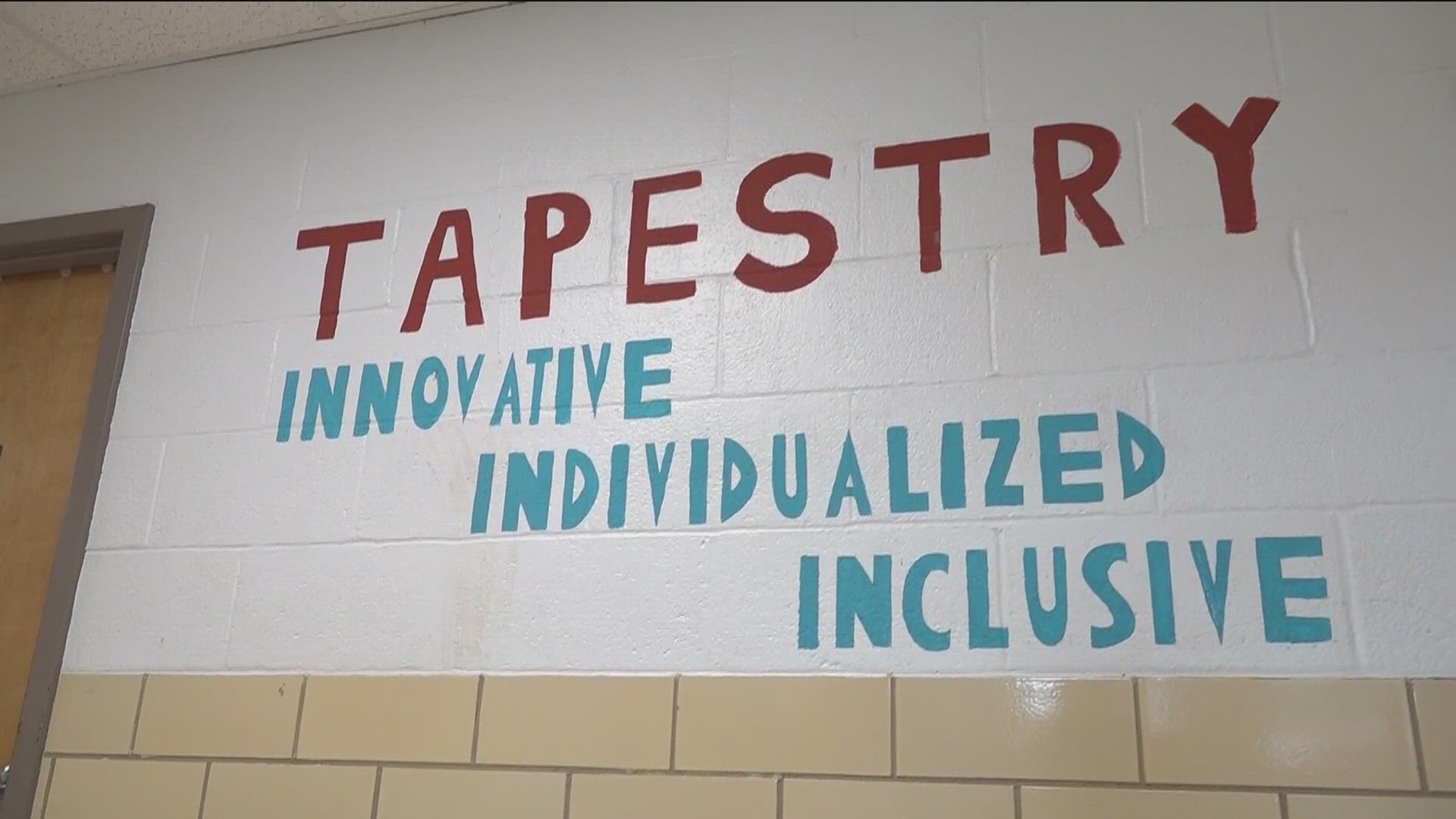ATLANTA — UPDATE: The petition for Tapestry Public Charter School to expand into the APS system was voted down by the school board Tuesday.
Original story and report below
The Atlanta Board of Education will vote on whether to greenlight a new school option for Atlanta students seeking extra support on Tuesday.
In March, Tapestry Public Charter School submitted a petition to the district to replicate the charter school’s model it currently operates in DeKalb. The school serves middle and high school students in an ‘inclusive, individualized learning environment,’ a setting that parent Michelle Hall would love to see as an option for her son, Harris.
“My son Harris is the most joyful playful child,” Hall shared with 11Alive. “He loves school. Unfortunately, he learns differently.”
Harris was born with a genetic syndrome that causes processing delays, Hall said. Her son started his education within Atlanta Public Schools, but despite the effort of administrators, Hall said, his days “were full of tears.”
Then Hall said she learned about the potential of Tapestry and saw what they do to meet the needs of all students. She’s now among the 650 families hoping the board will grant the school’s petition for expansion to the district.
“50 percent of our children are neurotypical,” Dr. Matthew Tyson, the school’s principal, explained. “50 percent have special needs, primarily autism.”
Tyson shared that students apply for a lottery spot across the district and are ultimately co-taught in the same classroom. The school setting, he explained, is modified to help set students up for success.
“Everything is thought out beforehand,” Tyson shared, citing examples ranging from school lighting to seating and bell schedules.
Tapestry has also noted recent success. The charter school was recognized earlier this summer as the Georgia Charter School of the Year "Gamechanger" for the school’s ability to tackle pandemic-related learning loss.
“We are not a huge school,” Tyson emphasized, “but for the students that we serve we make all the difference in their lives.”
While supporters hope to replicate that model in Atlanta Public Schools, board members will ultimately cast their votes during Tuesday’s 2:30 p.m. meeting.
A review committee evaluated the petition before the meeting and cited the school’s innovative design, academic strength, community support and fiscal sustainability as strengths. However, the committee ultimately denied the petition based on the administration’s concerns around demographics, a special education teacher shortage, and how Tapestry could potentially impact enrollment at current APS schools.
But for Hall’s family, the opportunity Tapestry provides is immeasurable.
“I would love for Harris to be in the classroom with members of his community, for him to feel special and included and not the exception,’ she said.
Tapestry Public Charter School Board issued the following statement regarding the recommendation provided by the Office of Charter + Partner Schools.
"We are extremely disappointed by the recommendation from Atlanta Public School’s Office of Charter + Partner Schools regarding our application to replicate the success we’ve had in DeKalb County School to serve students and families in APS.
Specifically, as the demographic information included in the recommendation is inaccurate, we’d like for the office to recognize and provide a correction that accurately represents Tapestry’s existing student population:
- Tapestry does not enroll a higher share of white students. Currently, 32% of students are African-American, 20% are Hispanic, 18% are Caucasian, 10% are Asian, 10% have Native American heritage, and 10% identify as mixed-race. The rates of students with indigenous heritage skyrocket when you include Central and South America.
- More than 40% of our children are on free and reduced lunch, which is significantly higher than what APS included in its demographic concerns.
- Furthermore, 20% of our students speak a first language other than English.
In addition, it is imperative that the APS board recognizes that realistically a school with a maximum of 300 students over seven grade bands serving the entire APS district cannot – and will not -- materially impact either global enrollment or the teacher shortage.
Moreover, because of the rapidly gentrifying nature of metro Atlanta, limiting the enrollment boundaries is more likely to result in the inability to attract diverse enrollment. Many schools that start with targeted enrollment zones have to alter course in a couple of years to ensure the attraction of a diverse demographic. We are committed to working with APS and our community partners to ensure continued engagement in all APS communities, which is reflected by the intents to enroll that represent families throughout the district."

